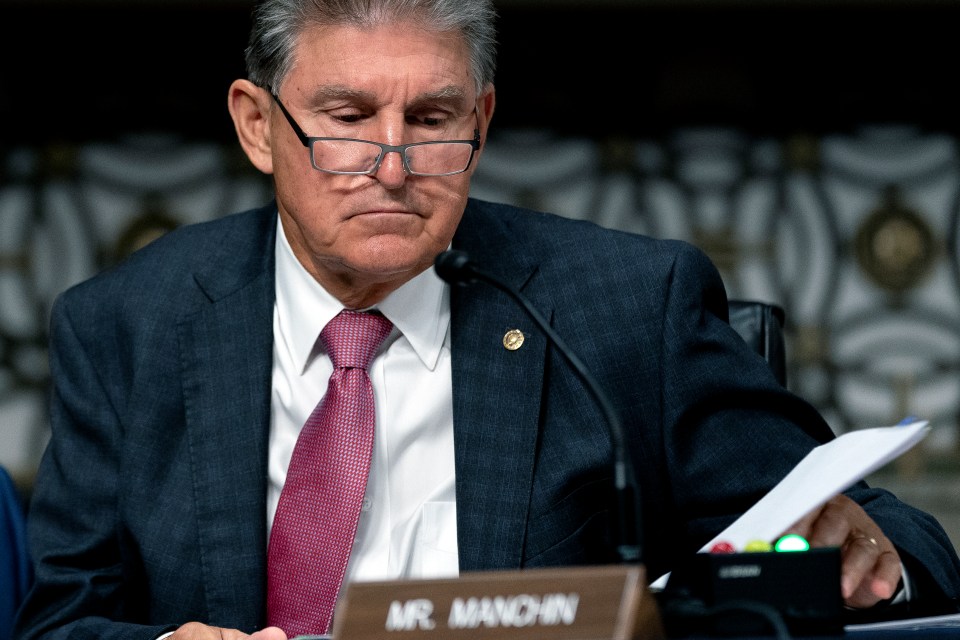Democrats would not be advocating for DC statehood if it did not give them virtually guaranteed two senators.
There likely are Democrats who think like that, but certainly not all Democrats and I doubt most Democrats think that way. Your narrative of me as a Democrat is very inaccurate. As a Democrat, in order to take a position on this issue, I would want to know (1) what are the cost-benefits, one cost is citizens not having votes in the Senate and having only non-voting delegation in the House, but do they pay less taxes or some other thing that allegedly balances out the lack of representation and (2) how do the people of DC feel about statehood; (3) are there other solutions to the problem of not having the same rights; and (4) apparently, historically one of the benefits of this setup was that govt controlled the area for security reasons but somehow, I think now that there are a gazillion people there and the area is vast and so probably far more people are affected than originally conceived. So, overall, without knowing much about this tangent, I'd be for it, if it is the best solution and I lean in that direction merely because lack of rights is a big problem. I doubt I am different from most other Democrats on the issue.
Now, it is interesting that you are making those attacks against forum members' motivations, though. That's because the opposite viewpoint is "lost" on you for some reason: that citizens of DC are denied the same rights as everyone else. That is a major problem and too authoritarian. When right-wingers see a situation like this, they start screaming "The Democrats are trying to [INSERT CONSPIRACY PROJECTION HERE] because they are communists!!1111!one" Meanwhile, again, it's actually Reich wingers who are violating principles of liberty and fairness and trying to retain that edge of power or at least it's the goal of some of them and many of the others are sheeple.
That is the typical situation we deal with in many other political issues, much like in the instance of the op. To review--right-wing Senators refused to to do their jobs so that they could get more opportunities for conservatives in the Supreme Court. And it worked. Right-wingers are the ones who violated principles of fairness and liberty. And some of the hoped-for extremists are in the Court now. Trump put way more federal judges in place than anyone else ever did, too. He has packed all courts with authoritarian weirdos, extremists, and other corrupt bastards.
This is an actual problem.
...
...
How should grownups deal with the existence of the problem? They should identify the problem. Admit it is there. Then, they should analyze the situation, including possible solutions. Then, discuss.
That is the opposite of "YOU JUST WANT TO BE TYRANTS!!!11"
So, Derec, are you going to concede it's an issue or waste everyone's time projecting and politicizing and attacking?
Are you going to discuss potential solutions and the cost-benefit of any of them?
I'll start the grown-up conversation for you. Of course it's an issue! Next, here's a solution--Expanding the court and getting some Biden-picks on the Court. Conservatives would scream he's adding communists and it is a take over and they'd be Jade Helming the situation. This is typical, though. Call them dumbasses and liars. It would be fair.
One problem with this potential solution is Republicans would then have a lot of precedent and scare tactics (like those you employ) to then expand the court again when they are in control of government again and just add more conservatives. Or they might block nominations again until Biden is out and a Republican President is in and so even just the first expansion of the court would be conservative extremists.
That doesn't seem to be how we want our government to be, going back and forth like that, increasing polarization of citizens and government, wasting time of Congress every cycle to write new legislation to expand the court and then more nomination drama, too.
So what are your thoughts on solutions?

